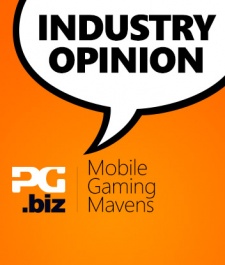Before Steve Job's resignationknocked it into the long grass, the big topic for discussion was the likelihood of Nintendo making games for other platforms, especially mobile.
We asked the Mavens: Following the news that Nintendo's investors are pressuring it to develop for iOS, do you think it's seeing the mobile light?
Dave Castelnuovo from Bolt Creative argued what's generally considered to be Nintendo's standard defence.
"Nintendo does what it wants. It hardly ever gives in to outside pressure. It took it forever to embrace the DVD. It purposely launches underpowered systems so it can make a profit from day 1 (such a controversial idea!). Because of this, and the fact it has a lot of cash on hand, it should be able to weather a failed hardware cycle," he said.
He was very clear, however, that Nintendo shouldn't abandon its consoles. "If Mario wasn't exclusive then it would be forced to give up its hardware business for good," he said.
What you do best
Still, Castelnuovo advised Nintendo to pare back the hardware wackiness, produce cost-effective consoles, leverage its great game design and IP, and wait for user acceptance to return.
But, "The Wii and DS was the golden age of Nintendo. I'm not sure if that level of excitement will ever come back," he warned.
Christopher Kassulke of publisher HandyGames agreed with that sentiment, but, more widely, he thought Nintendo was fighting a losing battle against market dynamics.
"In the past, Nintendo always mentioned it would not release its game brands onto a hardware platform it didn't control or own. I doubt it's changed its mind," he said.
Against the current
Yet Kassulke felt any platform which only contains one company's own IP will be doomed, due to a lack of innovation.
"Content and a healthy business model for developers drive a platform," he said. "Content is king! If you try to work only with a handful of publishers with a few titles, don't be surprised if you fail."
However, he didn't write Nintendo off just yet. "I doubt that the big console war is over. Perhaps Nintendo has lost some battles but the war is still going on. I will not bet on anyone in the moment."
Fishlabs' Michael Schade was more stark.
"Seriously, if the next DS is not a phone, it's just as dead in the water as the PS Vita already is," he commented.
"The latter will be outdated hardware compared to iPad 3 when it ships and I haven't met a single developer at GDC, Develop, GDC Europe or Gamescom that is supporting it but everyone develops on iOS!"
Big shake out
Schade was also forthright in damning Nintendo's faux-tablet Wii U, implying the audience was too educated or jaded for it to succeed.
"Many kids now grow up with an iPod touch or even an iPad. I don't see them going crazy over downgrading to a dedicated (read 'limited') gaming device, featuring underpowered hardware with overpriced games compared to what's available on iOS."
He thought both Nintendo and Sony would be out of the gaming business in a couple of years, at least if they didn't demonstrate enough agility to adapt to mobile's incredible speed of innovation.
Jon Hare of Tower Studios had some audacious predictions about the wider future of gaming too.
"Within five years, Sony will merge with either Microsoft or Apple, and Nintendo will reluctantly merge with the other party ... and all of the games publishers will be fighting it out on the cloud for airplay through these devices," he pondered.
He also reckoned the battleground would be tablets that hooked wirelessly into big screens, controllers, keyboards and so on.
One device to rule them
David Helgason of Unity Technologies agreed that the industry had moved to more flexible devices.
"I can't imagine buying one of these dedicated devices ever again (not even with a corporate credit card): my electronics cupboard maintained by my girlfriend doesn't need more objects collecting dust," he said.
"Spot on, David. Single-purpose devices need to justify themselves on delivering a specific performance/experience/service so well that you cannot replicate it," said RIM's Volker Hirsch.
"That's why you still have high-end SLRs (for instance) but watches, alarm clocks, snapshot cameras, etc are increasingly losing share to smartphones..."
Sadly for Nintendo, Hirsch couldn't see it finding a feature that fitted the single-purpose device slot so well as to exclude the competition from multi-purpose devices.
"We all saw how quickly Microsoft and Sony managed to eradicate the Wii's initial feature for motion-sensitive gaming. Innovating a single-purpose device will only ever get harder," he cautioned.
But the bottomline for many was perhaps best summed up by Wen Chen of developer Coconut Island.
"As a gamer, I can't find a reason why I wouldn't buy a phone on which I can play Super Mario or Zelda," he said.
Maybe, just maybe...





















